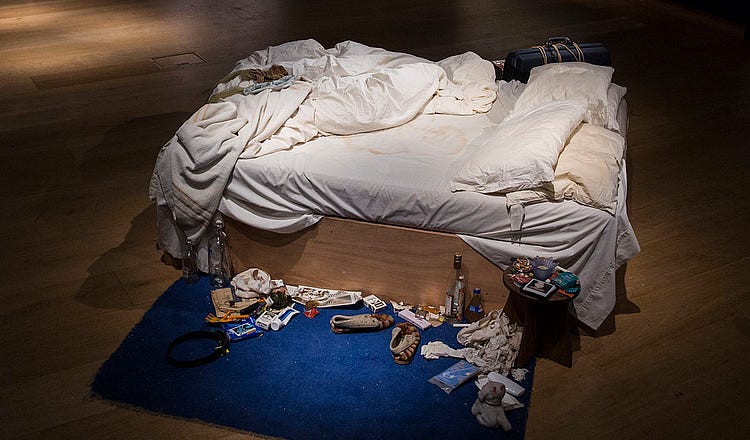Hurkle-Durkle Is the New Way to Self-Care Ourselves to Death

Tracey Emin’s 1998 piece My Bed, on display at Christie’s on June 27, 2014, in London, England. (Rob Stothard via Getty Images)
Thanks to the internet, there are fancy names for old-fashioned laziness.
165
Every few years, the algorithm latches on to a new justification for doing absolutely nothing.
Sometime this winter, I noticed videos about bed rot, which is what it sounds like: plonking down in bed indefinitely. Like most people, I didn’t need an instructional video to teach me about lying down. My bedroom is tiny; it basically just fits a bed, on pur…
Continue Reading The Free Press
To support our journalism, and unlock all of our investigative stories and provocative commentary about the world as it actually is, subscribe below.
$8.33/month
Billed as $100 yearly
$10/month
Billed as $10 monthly
Already have an account?
Sign In


